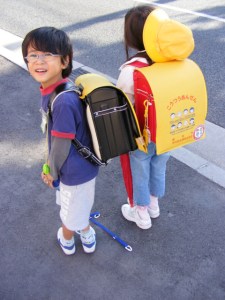Hey there.. today I thought I’d share with you something you don’t get to see much when it comes to learning a new language. Sure, you may learn idioms, but will you learn jokes and know how to make your own? I’ll share with you my experience on how to make your friends laugh. Note that you’ll need at least minimal conversational Japanese capabilities.
Making jokes is a great way to remember new vocabulary and entertain your friends. Fortunately, if you’re sharp, making jokes in Japanese is particularly easy. Plus, your friends will laugh either because it’s funny or they’re being polite and recognize you tried. Either way, you’ll feel good.

ahahaha... she said "思ってサンド"
Method 1: Puns
Homophones are everywhere in the Japanese language, if you haven’t noticed already. Notice three meanings for the one word はし. 橋,箸 and 端. Just as an example. Of course, an opportunity for a pun will come up given the right context. Take, for example, the word 確かに(たしかに).You’ll notice they say it a lot… be silly and turn it into たし蟹 making the hand signals for our quotation marks while you say it. They’ll take it as crab. Be creative with your puns. Notice a word that people use frequently and is new to you and create sentences with all the puns possible. In American culture, puns may be corny… but in Japan they love it.
Method 2: Sarcasm
Be careful with this one. It can be offensive if not used in the right context. Make sure you’re with good friends first. In Japanese, sarcasm isn’t so much a tone… they use keigo instead (the super polite form of speech). This is perfect if you need to practice your keigo in a friendly manner without worrying about messing up. Instead of 元気だよ as an answer, you can say, お元気でございます. If you’re a girl, you can do the nasal tone of voice you hear in stores while you say it. Guys can do a silly deeper voice. Do some silly bouts between your friends using keigo. You’ll impress them with your Japanese ability and get a good laugh at the same time.
Method 3: Mockery
Making fun of the things around you is great. Nothing too personal.. again be careful of who you mock. For me, I always loved making fun of the train announcers while riding the train. I’d plug my nose and talk like them and say their sentences. This was great since I learned how to listen to keigo and train language, and I also learned my train stops. I also paid more attention to the marquee and learned to read them faster and I learned the kanji for each train stop I frequented… learning the kanji led me to learn the pronunciation of them when used in other names… for example… 中村橋 and 赤橋… hmmm it’s always ばし!
Method 4: Being Outright Ridiculous
Take a look at Variety television if you’re in Japan. (If not.. maybe you can catch it on youtube or KeyHoleTV). Japanese humor is sort of similar to Monty Python in that it’s just plain silly. Hitting someone on the head if they made a bad pun… shivering if the joke was corny… Notice how light and happy the humor is… always slightly teasing and always ridiculous. Mimicking the actions you see and especially mimicking current, popular comedians (maybe オッパッピー as of 2007) will always spring a laugh and teach you Japanese pop-culture!
Where to not get your humor:
Anime… unless it’s really popular anime like Bleach, One Piece, or classical like Sailor Moon and Pokemon. If it’s something like Cowboy Bebop (not so widely known in Japan) and you try to make a joke relating to it, you won’t be so successful… and if you constantly do it you’ll be otaku. However, you can pretend to be super dramatic like anime does sometimes… turn a regular friend into a 恋人 whom you’re having issues with as a joke.
Overall, making jokes in Japanese has great benefits if you’re careful. Don’t be too insensitive and be careful about who you’re joking with and what the joke is about. Staying away from personal issues and people who aren’t your close friends is usually a good choice. Rule usually goes, the less friendly you are with the person the lighter and more general the joke should be. Otherwise, jokes are a great way to learn Japanese and keep it in your head.
